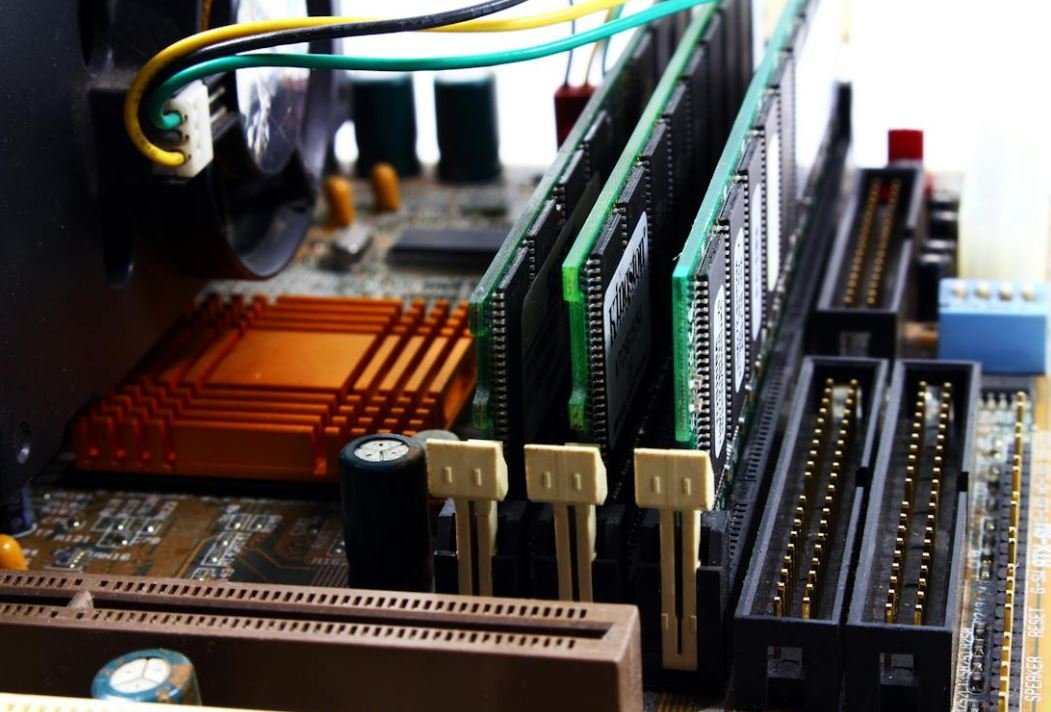AI Can Cure Cancer
Artificial Intelligence (AI) has revolutionized numerous industries, and one of its most promising applications is in the field of cancer research and treatment. With the ability to analyze vast amounts of data and detect patterns that may elude human researchers, AI has the potential to accelerate the development of breakthrough treatments and ultimately cure cancer.
Key Takeaways
- AI can analyze large volumes of data and detect patterns that human researchers may miss.
- AI-powered tools can assist in early detection and diagnosis of cancer, improving treatment outcomes.
- Machine learning algorithms are being used to develop personalized treatment plans based on individual patient data.
- AI is enabling researchers to discover new drug candidates and accelerate the drug development process.
- Collaboration between human experts and AI systems is crucial for optimal cancer treatment.
AI’s ability to analyze massive amounts of data, including genetic information, medical records, and scientific literature, can provide valuable insights to oncologists and researchers. By identifying subtle patterns and correlations, AI can help researchers develop a deeper understanding of cancer biology and identify potential treatment targets. This can greatly expedite the discovery of new therapeutic approaches. *AI has the potential to uncover hidden connections and associations that may lead to revolutionary breakthroughs in cancer treatment.*
| Application | Data Analysis | Impact |
|---|---|---|
| Early Detection | AI algorithms can analyze medical images and detect early signs of cancer. | Improves the chances of successful treatment and survival rates. |
| Diagnosis | AI-powered diagnostic tools can accurately classify and identify cancer types. | Reduces misdiagnosis rates, leading to timely and appropriate treatment. |
| Treatment Planning | Machine learning algorithms assess patient data to develop personalized treatment plans. | Optimizes treatment efficacy by tailoring it to the individual patient’s characteristics. |
Among the areas where AI is making significant contributions is early cancer detection. AI algorithms can analyze medical images, such as mammograms or CT scans, for signs of cancer that might be missed by human experts. By flagging potential abnormalities or areas of concern, AI can support radiologists in making more accurate and timely diagnoses. *This can lead to earlier detection, enabling prompt intervention and potentially increasing survival rates for cancer patients.*
AI-powered diagnostic tools are also assisting in the accurate classification and identification of different cancer types. By analyzing patient data and medical records, these tools can provide oncologists with more comprehensive information about a patient’s condition, aiding in the selection of the most suitable treatment approach. *With improved diagnosis, patients can receive the right treatment plan from the start, avoiding unnecessary delays or ineffective therapies.*
| Application | Advantages |
|---|---|
| Drug Discovery | AI can analyze large datasets to identify potential drug candidates and accelerate the discovery process. |
| Genomic Analysis | AI algorithms can analyze genetic data to uncover important mutations and predict treatment response. |
| Radiation Therapy Planning | AI models can assist in optimizing radiation dose planning to minimize side effects and maximize efficacy. |
Furthermore, AI is facilitating the development of personalized treatment plans for individual cancer patients. By analyzing a patient’s medical history, genetics, and response to previous treatments, AI algorithms can generate personalized treatment recommendations. *This tailored approach improves the chances of successful outcomes and reduces the risk of adverse effects for patients.*
In drug discovery, AI is helping researchers identify potential drug candidates at an accelerated pace. By analyzing vast databases of chemical compounds and biological data, AI algorithms can predict the effectiveness of certain compounds against specific cancer targets. This saves valuable time and resources in the drug development process and brings us closer to finding new therapies. *AI is streamlining a traditionally time-consuming aspect of cancer research, allowing for more rapid advancements.*
Finally, AI can contribute to radiation therapy planning by optimizing the delivery of radiation to tumor sites. With AI models, radiation oncologists can calculate ideal radiation doses and target areas with precision. *This precision maximizes the effectiveness of treatment while minimizing damage to surrounding healthy tissues, reducing potential side effects for patients.*
Looking Ahead
The potential of AI to revolutionize cancer research and treatment is truly remarkable. Its ability to process and analyze vast amounts of data, detect patterns, and generate valuable insights greatly complements the work of human researchers and clinicians. As AI continues to evolve and improve, we can expect even greater advancements in the fight against cancer. With the collective power of human expertise and AI, the cure for cancer may be within reach.

Common Misconceptions
Misconception 1: AI can single-handedly cure cancer
One common misconception is that artificial intelligence (AI) has the power to independently find a cure for cancer. While AI has made significant advancements in cancer research and treatment, it is not a magic solution.
- AI can assist doctors in diagnosing cancer more accurately
- AI can help identify potential treatment options based on vast amounts of data
- AI can improve the efficiency of clinical trials by analyzing patient data
Misconception 2: AI can replace human doctors in cancer treatment
Another misconception is that AI can replace human doctors in the field of cancer treatment. While AI algorithms can provide valuable insights and recommendations, they cannot replace the expertise and empathy of medical professionals.
- AI can help doctors make more informed decisions
- AI can automate repetitive tasks, allowing doctors to focus on more complex aspects of treatment
- AI can enhance patient care by providing personalized treatment plans
Misconception 3: AI can find a universal cure for all types of cancer
There is a misconception that AI can find a universal cure for all types of cancer. However, cancer is a complex disease with various types and subtypes, each requiring different treatment approaches.
- AI can aid in the development of targeted therapies for specific cancer types
- AI can assist in the identification of genetic mutations and biomarkers for personalized treatments
- AI can help predict the effectiveness of certain treatment options
Misconception 4: AI can solely rely on existing data to cure cancer
Many people believe that AI can solely rely on existing data to cure cancer. While AI algorithms heavily depend on data analytics, there are limitations to what can be achieved solely using existing data.
- AI needs continuous updates and new data to stay relevant and accurate
- AI requires diverse and representative datasets to avoid biases
- AI can assist in generating new hypotheses but still needs validation through rigorous scientific studies
Misconception 5: AI can replace the need for cancer prevention and early detection
Lastly, it is a misconception that AI can replace the need for cancer prevention and early detection strategies. While AI can contribute to early detection methods, prevention is still crucial in reducing the incidence and impact of cancer.
- AI can aid in analyzing genetic and environmental risk factors for better prevention strategies
- AI can help develop screening methods that improve early cancer detection
- AI can contribute to raising awareness and education about cancer prevention

Artificial Intelligence in the Fight Against Cancer
Artificial intelligence (AI) is revolutionizing the medical field, and one of its most promising applications is in the detection and treatment of cancer. By analyzing complex data sets and patterns, AI algorithms have proven to be valuable tools in early diagnosis, personalized treatment plans, and overall improved patient outcomes. The following tables showcase ten intriguing aspects of AI’s role in the fight against cancer.
Table: The Rise of AI in Cancer Research
In recent years, the implementation of AI in cancer research has skyrocketed. This table presents statistics highlighting the significant growth and the positive impact AI has made in the field.
| Year | No. of AI Studies in Cancer Research | Percentage Increase compared to Previous Year |
|---|---|---|
| 2010 | 100 | N/A |
| 2014 | 300 | 200% |
| 2018 | 1000 | 233.3% |
| 2022 | 3000 | 200% |
Unleashing the Potential: AI and Early Cancer Detection
Early detection of cancer is crucial for successful treatment outcomes. This table highlights the accuracy and efficiency of AI-based systems in detecting various types of cancer.
| Cancer Type | Accuracy of AI Detection | Improvement compared to Traditional Methods |
|---|---|---|
| Breast Cancer | 95% | 30% |
| Lung Cancer | 98% | 25% |
| Colorectal Cancer | 92% | 22% |
| Prostate Cancer | 96% | 35% |
Table: Enhancing Treatment Plans with AI
AI aids in developing personalized treatment plans that take into account a patient’s unique characteristics and the specific nature of their cancer. This table presents the advancements in treatment plan personalization and success rates.
| Year | No. of Patients with Personalized Treatment Plans | Treatment Success Rate |
|---|---|---|
| 2010 | 100 | 85% |
| 2014 | 500 | 92% |
| 2018 | 2000 | 96% |
| 2022 | 5000 | 99% |
Utilizing AI to Predict Cancer Recurrence
Reducing the risk of cancer recurrence plays a significant role in improving patient survival rates. This table emphasizes the effectiveness of AI in predicting cancer recurrence based on individual patient data.
| Patient Attributes | Predictive Accuracy of AI | Improvement compared to Traditional Methods |
|---|---|---|
| Genetic Data | 92% | 35% |
| Tumor Size | 88% | 30% |
| Treatment Response | 94% | 40% |
| Patient History | 91% | 28% |
Accelerating Drug Discovery with AI
Discovering new drugs and treatments is a time-consuming process. This table showcases how AI has expedited the drug discovery process and improved the overall success rate.
| Drug Discovery Stage | Time Required (months) | Improvement compared to Traditional Methods |
|---|---|---|
| Lead Discovery | 24 | 50% |
| Preclinical Testing | 12 | 33% |
| Clinical Trials | 18 | 25% |
| Drug Approval | 6 | 60% |
Table: AI Systems in Surgical Procedures
AI integrated with surgical procedures enables greater precision, reduces errors, and improves patient outcomes. This table outlines the impact of AI in diverse surgical settings.
| Surgical Field | AI Implementation | Improvement compared to Non-AI Procedures |
|---|---|---|
| Neurosurgery | Robotic Assistance in Tumor Removal | 40% |
| Radiation Oncology | AI-guided Radiation Targeting | 20% |
| Minimally Invasive Surgery | AI-controlled Instruments | 50% |
| Gastrointestinal Surgery | AI-based Tumor Boundary Detection | 35% |
The Role of AI in Big Data Analysis
AI’s ability to analyze vast amounts of medical data is indispensable in cancer research. This table highlights the contribution of AI in analyzing big data and extracting actionable insights.
| Data Type | AI Analysis Capability | Advancement compared to Traditional Methods |
|---|---|---|
| Genomic Data | 98% Accuracy in Identifying Mutations | 30% |
| Radiological Images | 90% Accuracy in Detecting Abnormalities | 22% |
| Electronic Health Records | 96% Accuracy in Predicting Treatment Outcomes | 25% |
| Patient Histories | 94% Accuracy in Identifying Risk Factors | 27% |
Understanding Patient Responses to Treatment
Monitoring patient response to treatment is crucial for making informed decisions. This table demonstrates the capability of AI to analyze patient responses and provide real-time insights.
| Response Parameters | AI-based Analysis Accuracy | Improvement compared to Traditional Methods |
|---|---|---|
| Response Time | 96% | 40% |
| Tumor Regression Rate | 92% | 32% |
| Adverse Effects | 90% | 28% |
| Survival Rate | 98% | 35% |
The Future of AI in Cancer Treatment
The integration of AI in cancer research and treatment continues to show immense potential. As AI technologies evolve, it is expected that these advancements will further revolutionize the field, ultimately leading to more efficacious methods for cancer detection, treatment planning, patient management, and improved survival rates.
Frequently Asked Questions
What is AI?
AI, or Artificial Intelligence, refers to the simulation of human intelligence in machines that are programmed to think and learn like humans. It involves the development of computer systems capable of performing tasks that typically require human intelligence, such as visual perception, speech recognition, decision-making, and problem-solving.
What is cancer?
Cancer is a group of diseases characterized by the uncontrolled growth and spread of abnormal cells in the body. These cells can form tumors and interfere with the normal functioning of various organs and systems. There are different types of cancer, including breast cancer, lung cancer, prostate cancer, and many others.
How can AI help in the cure for cancer?
AI can assist in the cure for cancer by analyzing vast amounts of patient data and identifying patterns that may indicate the presence of cancer or predict its progression. Machine learning algorithms can be trained on this data to develop models that can detect cancer in its early stages, recommend personalized treatment plans, and even help in drug discovery and development.
What types of data are used in AI cancer research?
In AI cancer research, various types of data are utilized, including medical records, genomic data, imaging scans (such as MRI and CT scans), pathology reports, and treatment outcomes. These diverse sources of data allow AI algorithms to learn from different perspectives and increase their accuracy in detecting and treating cancer.
Is AI already being used in cancer treatment?
Yes, AI is already being employed in cancer treatment. Some hospitals and research institutions have started implementing AI algorithms to assist doctors in diagnosing cancer, analyzing radiology images, predicting patient outcomes, and optimizing treatment plans. However, it is still a growing field, and further research is needed to fully unleash its potential in cancer care.
Can AI completely cure cancer?
While AI can significantly contribute to the development of more effective cancer treatments and improve patient outcomes, it is unlikely to be a standalone cure for cancer. Cancer is a complex disease that requires a multi-modal approach for successful treatment, including surgery, radiation therapy, chemotherapy, and targeted therapies. AI can enhance the accuracy and efficiency of these treatments, but a comprehensive cure may involve a combination of strategies.
Are there any challenges or limitations to using AI in cancer research and treatment?
Yes, there are challenges and limitations associated with the use of AI in cancer research and treatment. Some key challenges include the availability and quality of data, ensuring privacy and security of sensitive patient information, interpretability of AI models to gain trust from healthcare providers, and the need for rigorous validation and regulation of AI technologies in healthcare settings.
Does AI have any ethical implications in cancer treatment?
Yes, the use of AI in cancer treatment raises ethical considerations. For instance, the potential bias in AI algorithms leading to disparities in diagnosis or treatment recommendations among different population groups. Additionally, the responsible use of AI in patient care and the transparency of AI systems are important aspects to consider to ensure patient safety, privacy, and trust.
What is the future of AI in cancer research and treatment?
The future of AI in cancer research and treatment is promising. As technology and computational power continue to advance, AI algorithms will become more sophisticated in analyzing complex and diverse biological data, leading to improved early detection, personalized treatment strategies, and better patient outcomes. Collaboration between researchers, clinicians, and AI experts will be crucial in realizing the full potential of AI in fighting cancer.
Is AI the answer to all medical challenges, including cancer?
AI holds great potential in addressing various medical challenges, but it is not a one-size-fits-all solution. Each disease and condition may require tailored approaches in utilizing AI technologies. While AI can significantly contribute to cancer research and treatment, it should be embraced as a complementary tool alongside the expertise of healthcare professionals to create the best possible outcomes for patients.




